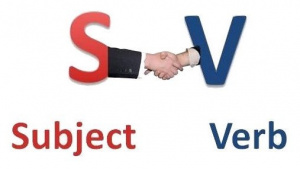Language/French/Grammar/Subject-verb-agreement-—-Agreement-with-more-than-one-subject
ni ... ni (neither... nor), soit ... soit, (either ... or) and ou (or)
The French language distinguishes two types which go with these modes of coordination. If the meaning emphasizes the individual and does not "add them up", the verb may very well be in the singular:
- Ni Vincent ni Nicolas n'a pu me dire où se trouvaient nos amis
Neither Vincent nor Nicolas was able to tell me where our friends were
- C'est soit elle soit sa sœur qui doit te joindre au téléphone
It's either her or her sister who must reach you on the phone
If, on the other hand, the 2 elements are considered as a group, the verb will be in the plural:
- Ni moi ni ma femme n'ont pu comprendre le fonctionnement de cet appareil
Neither I nor my wife could understand how this device works
The same principle works with the agreement with "ni l'un ni l'autre". When they are “additive”, the verb is in the plural, when they act as “individuals”, the verb is in the singular:
- Ni Pierre ni Renée n'avaient pu se souvenir du nombre de participants
Neither Pierre nor Renée could remember the number of participants
- Ni l'une ni l'autre n'ont pu rencontrer le directeur de l'usine
Neither could meet the factory manager
- Ni Olivier ni Sébastien ne viendra
Neither Olivier nor Sébastien will come
- Ni l'une ni l'autre ne viendra
Neither the one nor the other will come


